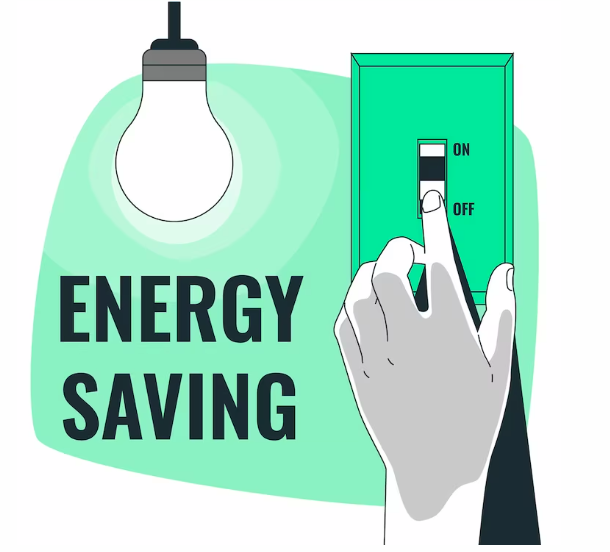Tiết Kiệm Năng Lượng Tiếng Anh 2023
Trong bài viết này, KISS English sẽ cùng các bạn tìm hiểu chủ đề tiết kiệm năng lượng tiếng anh. Hãy theo dõi nhé.
Xem ngay cách học từ vựng siêu tốc và nhớ lâu tại đây nhé:
Video hướng dẫn cách học từ vựng siêu tốc nhớ lâu – Ms Thuy KISS English
Chủ đề tiết kiệm năng lượng là một trong những chủ đề phổ biến nhất trong chương trình học cũng như các kì thi tiếng Anh. Trong bài viết này, KISS English sẽ cùng các bạn tìm hiểu chủ đề tiết kiệm năng lượng tiếng anh nhé.
Từ Vựng Chủ Đề Tiết Kiệm Năng Lượng Tiếng Anh

50 từ vựng chủ đề tiết kiệm năng lượng
- Energy Conservation: Sự bảo vệ năng lượng
- Energy Efficiency: Hiệu quả năng lượng
- Renewable Energy: Năng lượng tái tạo
- Sustainable Energy: Năng lượng bền vững
- Power Consumption: Tiêu thụ điện
- Electricity Savings: Tiết kiệm điện
- Energy-efficient Appliances: Thiết bị tiết kiệm năng lượng
- Insulation: Cách nhiệt
- LED Lighting: Đèn LED
- Solar Panels: Tấm năng lượng mặt trời
- Wind Turbines: Cối xay gió
- Hybrid Vehicles: Xe hơi hybrid
- Thermostat: Bộ điều nhiệt
- Standby Mode: Chế độ chờ (của thiết bị)
- Energy Audit: Đánh giá năng lượng
- Green Building: Công trình xanh
- Carbon Footprint: Dấu chân carbon
- Efficient Design: Thiết kế hiệu quả
- Low-Energy Building: Công trình tiết kiệm năng lượng
- Energy Policy: Chính sách năng lượng
- Renewable Resources: Tài nguyên tái tạo
- Energy Management: Quản lý năng lượng
- Energy Conservation Practices: Thực hành tiết kiệm năng lượng
- Power-saving Tips: Mẹo tiết kiệm điện
- Eco-friendly: Thân thiện với môi trường
- Efficient Appliances: Thiết bị hiệu quả
- Green Technology: Công nghệ xanh
- Reduce, Reuse, Recycle: Giảm, tái sử dụng, tái chế
- Energy Star: Nhãn năng lượng (được sử dụng cho thiết bị tiết kiệm năng lượng)
- Efficiency Rating: Chỉ số hiệu quả
- Alternative Energy Sources: Nguồn năng lượng thay thế
- Geothermal Energy: Năng lượng nhiệt địa cầu
- Biomass: Nguyên liệu sinh học
- Hydropower: Năng lượng thủy điện
- Conservation Measures: Biện pháp bảo vệ năng lượng
- Energy-Efficient Windows: Cửa sổ tiết kiệm năng lượng
- Carbon Neutral: Cân bằng carbon
- Off-Grid: Ngoại lưới (không sử dụng lưới điện công cộng)
- Smart Grid: Lưới điện thông minh
- Energy Saving Programs: Chương trình tiết kiệm năng lượng
- Power Management: Quản lý công suất
- Fuel Efficiency: Hiệu suất nhiên liệu
- Demand Response: Phản hồi nhu cầu
- Energy Conservation Awareness: Nhận thức về việc bảo vệ năng lượng
- Greenhouse Gas Emissions: Khí nhà kính thải ra
- Net-Zero Energy Building: Công trình không tiêu thụ năng lượng net-zero
- Energy Independence: Tự chủ về năng lượng
- Energy Transition: Chuyển đổi năng lượng
- Carbon Reduction: Giảm lượng khí carbon thải
- Energy-Saving Initiatives: Các sáng kiến tiết kiệm năng lượng
Cụm từ chủ đề năng lượng ăn điểm trong IELTS
Energy conservation: Bảo vệ năng lượng
Renewable energy: Năng lượng tái tạo
Sustainable energy: Năng lượng bền vững
Fossil fuels: Nhiên liệu hóa thạch
Solar power: Năng lượng mặt trời
Wind energy: Năng lượng gió
Hydropower: Năng lượng thủy điện
Geothermal energy: Năng lượng nhiệt địa nội
Nuclear energy: Năng lượng hạt nhân
Biofuels: Nhiên liệu sinh học
Energy consumption: Tiêu thụ năng lượng
Energy efficiency: Hiệu quả năng lượng
Energy crisis: Khủng hoảng năng lượng
Energy resources: Tài nguyên năng lượng
Power plant: Nhà máy điện
Carbon emissions: Khí thải carbon
Electricity generation: Sản xuất điện
Alternative energy sources: Nguồn năng lượng thay thế
Global warming: Nóng lên toàn cầu
Greenhouse gases: Khí nhà kính
Emissions reduction: Giảm khí thải
Energy-efficient appliances: Thiết bị tiết kiệm năng lượng
Smart grid: Lưới điện thông minh
Power consumption: Tiêu thụ công suất
Eco-friendly: Thân thiện với môi trường
Energy policy: Chính sách năng lượng
Energy transition: Chuyển đổi năng lượng
Energy audit: Đánh giá năng lượng
Transmission lines: đường dây truyền tải
Power outages: cắt điện
Rolling power cuts: Sự cắt điện luân phiên
State-controlled energy sector: ngành sản xuất năng lượng dưới sự kiểm soát của nhà nước
Radioactive waste: chất thải phóng xạ
Nuclear accident/disaster: tai nạn/thảm họa hạt nhân
To meet global energy needs: Đáp ứng yêu cầu về năng lượng của toàn cầu
Non-renewable forms of energy: dạng năng lượng không thể tái tạo
Bài Viết Về Tiết Kiệm Năng Lượng Tiếng Anh

In an era defined by technological advancements and escalating energy demands, the importance of conserving energy cannot be overstated. This essay aims to explore the significance of energy-saving practices and their potential impacts on both individual households and society as a whole.
At the individual level, adopting energy-saving measures offers numerous benefits. Firstly, reducing energy consumption results in lower utility bills, thereby freeing up financial resources that can be allocated to other essential needs. For instance, households that switch to LED lights or employ smart thermostats often witness a noticeable decrease in their monthly energy expenditures. Furthermore, embracing energy-efficient technologies contributes to environmental preservation. By utilizing appliances with Energy Star ratings and engaging in mindful energy consumption habits, individuals can mitigate their carbon footprint and contribute to curbing climate change.
On a societal level, widespread energy conservation efforts yield far-reaching consequences. Governments and institutions can play a pivotal role by introducing and enforcing policies that incentivize energy-efficient practices. Tax incentives for solar panel installations or subsidies for hybrid vehicles can motivate individuals and businesses to invest in sustainable technologies. These initiatives not only bolster environmental conservation but also stimulate economic growth through the creation of green jobs and the advancement of clean energy industries. Moreover, energy-saving practices at the societal level reduce the strain on power grids, ensuring a stable energy supply during peak demand periods.
The implications of energy conservation extend to future generations. The adoption of sustainable energy practices today safeguards valuable resources for tomorrow’s inhabitants. By promoting renewable energy sources such as solar and wind power, societies can diminish their reliance on finite fossil fuels, ensuring a continuous energy supply for future generations. Additionally, educating younger generations about energy conservation instills responsible behavior from an early age, fostering a culture of sustainability that will persist into the future.
In conclusion, the imperative to save energy is a shared responsibility that transcends individual preferences. By practicing energy conservation on both personal and societal levels, we can reap immediate benefits such as reduced costs and a cleaner environment, while simultaneously paving the way for a more sustainable and secure future. The path to a greener world begins with the conscious decisions we make today to protect and preserve the invaluable resources that power our lives.
Lời Kết
Trên đây là những thông tin về chủ đề tiết kiệm năng lượng tiếng Anh mà KISS English muốn đem đến cho bạn. Hy vọng bài viết này phù hợp và bổ ích với bạn. Chúc bạn có một buổi học vui vẻ và hiệu quả.
Xem thêm bài viết của KISS English:

